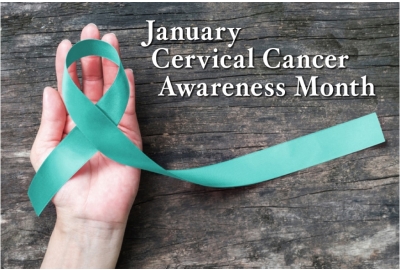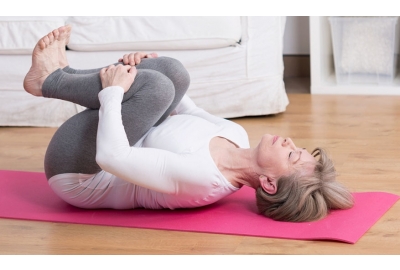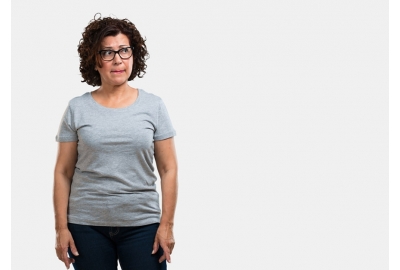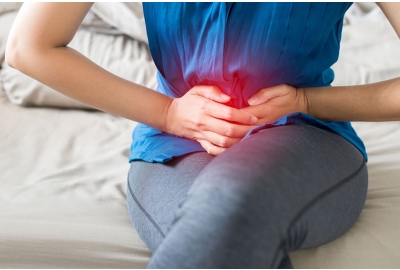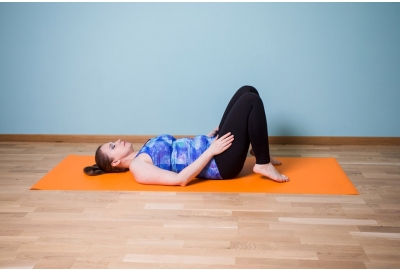Cervical Cancer: A Test of Strength, and a Call to Action
January is Cervical Cancer Awareness Month, and it is a time to remember the importance of health screenings for women. Here, we can gather knowledge and strength, not just to live on our own but to help each other, too. It's amazing how far we have come and how many positive shifts we have experienced regarding women’s health, especially regarding cervical cancer. With the advances in preventive care, we can find this potentially deadly cancer earlier than ever before and even prevent it from occurring in some cases. As Sisters in Health, let us take the time this month to explore our options and take control of our health and well-being. Let us rally together to create awareness, increase access, and reduce disparities so that we can all have healthier lives.
3 years ago
Hypertonic Pelvic Floor: Causes, Treatments, and More
“Hypertonic” means overactive, and refers to muscles that cannot relax, instead remaining in a continuous state of contraction. Any muscle in your body can become hypertonic, including the muscles in your pelvic floor. Because your pelvic floor is involved in so many bodily functions, a hypertonic pelvic floor can affect many different aspects of your life. If you suspect that you have a hypertonic pelvic floor, you should seek medical treatment so you can start living your life to the fullest again.
4 years ago
5 Best Exercises for Interstitial Cystitis
Also known as painful bladder syndrome, interstitial cystitis is a chronic bladder condition marked by persistent pain, pressure, and discomfort in the pelvic region. It also causes abnormal urinary frequency with relief after emptying the bladder, as well as pain during sex. Naturally, these symptoms can put quite a damper on one’s quality of life, making finding an effective treatment critical.
4 years ago
8 Foods That Are Good for Your Bladder
Your diet has a major impact on your overall health, and this is true for your bladder health as well. You’ve probably heard a lot about foods that can irritate your bladder, such as spicy dishes and chocolate. But what about foods that are actually good for your bladder? In this list, we’ve rounded up eight items that are actually beneficial for your bladder health — and be sure to check out our guide to calming an irritated bladder.
4 years ago
Menopause and UTIs: Understanding the Connection
Menopause symptoms like vaginal dryness and hot flashes are par for the menopausal course, but there’s one oft-overlooked symptom that many women don’t see coming — urinary tract infections (UTIs). Due to the same physiological changes that cause the more well-known symptoms, studies show that UTI risk increases with age. In fact, nearly 20 percent of women over 65 experience UTI, compared to just 11 percent of the general population.
4 years ago
Anxiety and Frequent Urination: Understanding the Connection
Anxiety and stress are linked to an array of medical conditions, including incontinence. Anxiety can lead to worsened frequent urination, and frequent urination itself can also cause anxiety, creating a negative cycle that just keeps going. We talked to the experts to learn what the connection is between frequent urination and anxiety — and what to do about it.
4 years ago
Is Incontinence a Normal Part of Aging?
Once you never had to worry about urinating when you didn’t mean to. But as you’re getting older, you might find yourself experiencing bladder leakage more and more. While incontinence does become more common as you age, it isn’t an inevitable part of aging. Read on to get the facts about incontinence aging, and to learn more about how you can treat incontinence.
4 years ago
9 Signs You’re Overdoing Kegels
Kegels are a common pelvic floor exercise that strengthen muscles at the bottom of your core. While Kegels have many benefits, like any exercise, it’s possible to have too much of a good thing. Doing too many Kegels can strain your muscles, causing pain, discomfort, and more. Read on to discover what Kegels can and can’t do and what the signs of overdoing Kegels are:
4 years ago
How to Do Reverse Kegels
You have probably heard of Kegel ball exercises, which involve contracting the pelvic floor muscles in order to strengthen them. Kegels are best for weak pelvic muscles that cannot contract as much as you need them to. On the other hand, reverse Kegels are perfect for tight pelvic muscles that need to relax. They focus on releasing tension from the muscles and stretching the whole area out. Reverse Kegels are a great exercise for anyone who suffers from a tight pelvic area, which can lead to pain during sex, cramps, and more. In this guide, we’ll explain how to do reverse Kegels and offer some tips for getting the most out of these exercises.
4 years ago
The Best Exercises for a Menopause Belly
Thanks to dropping estrogen levels and a reduced metabolism, you might find yourself gaining weight during menopause, especially around your belly. Losing that weight can also become more challenging, and you might find it taking longer than it did previously. (Not to mention, the link between menopause and bloating can make your tummy look even larger.)
4 years ago
